Unit 9: The Pacific, 700-1980 CE
3.0(1)
3.0(1)
Card Sorting
1/32
Earn XP
Description and Tags
Last updated 7:48 AM on 3/31/23
Name | Mastery | Learn | Test | Matching | Spaced | Call with Kai |
|---|
No analytics yet
Send a link to your students to track their progress
33 Terms
1
New cards
‘Ahu ‘ula
Hawaiian feather cloaks
2
New cards
Malagan
a large, traditional ceremony from Papua New Guinea, as well as the masks and costumes used in that ceremony
3
New cards
Mana
a supernatural force believed to dwell in a person, or a sacred object
4
New cards
Moai
large stone sculptures found on Easter Island
5
New cards
Tapa
a cloth made from bark that is soaked and beaten into a fabric
6
New cards
Nan Madol
92 small artificial islands connected by canals, about 170 acres in total.Built out into the water on a lagoonCity built to separate the upper classes from the lower classes.
7
New cards
Female deity
Many were kept in religious buildings belonging to the community.Sometimes they were dressed in garments; may have been decorated with flowers.Taken by missionaries who did not record anything about the sculptures.
8
New cards
Navigation chart
meant to be memorized prior to a voyageenabled navigators to guide boats through the many islands to get to a destination.made of wood, therefore waterproof and buoyant.
9
New cards
wapepe
Charts are called \____ in the Marshall Islands.
10
New cards
‘Ahu ‘ula (feather cape)
Feathers numbered 500,000; some birds had only seven usable feathers.Only high-ranking chiefs or warriors of great ability were entitled to wear these; mostly by men.
11
New cards
Mana
a supernatural force believed to dwell in a person or sacred object.
12
New cards
Red
\____ was considered a royal color in Polynesia; yellow was prized because of its rarity.
13
New cards
Staff God
Large, column-like, wooden core mounted upright in village common spaces; the wooden core is wrapped with tapa cloth.The wooden sculpture placed on top features a large carved head with several smaller figures carved below itMost were destroyed; only the top ends were retained as trophies.
14
New cards
manava
Reverend John Williams observed that the barkcloth contained red feathers and pieces of pearl shell, known as the \______ or the spirit of the god.
15
New cards
Hiapo (tapa)
cloth made from tree bark; the pieces are beaten and pasted together.After it is dried, designs are sometimes repainted to enhance the effect.Traditionally worn as clothing before the importation of cotton.
16
New cards
Hiapo
the word used in Niue for tapa (bark cloth).
17
New cards
Tapa
It takes on a special meaning: commemorating an event, honoring a chief, noting a series of ancestors.Generally worn by womenmany of the images have a rich history.
18
New cards
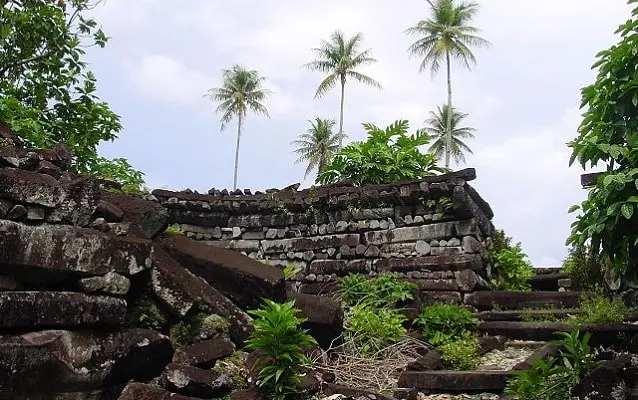
Nan Madol
92 small artificial islands connected by canals, about 170 acres in total. Built out into the water on a lagoon. City built to separate the upper classes from the lower classes.
19
New cards
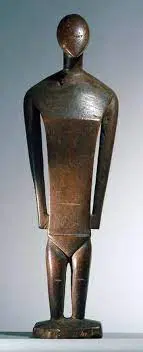
Female deity
Many were kept in religious buildings belonging to the community. Sometimes they were dressed in garments; may have been decorated with flowers. Taken by missionaries who did not record anything about the sculptures.
20
New cards
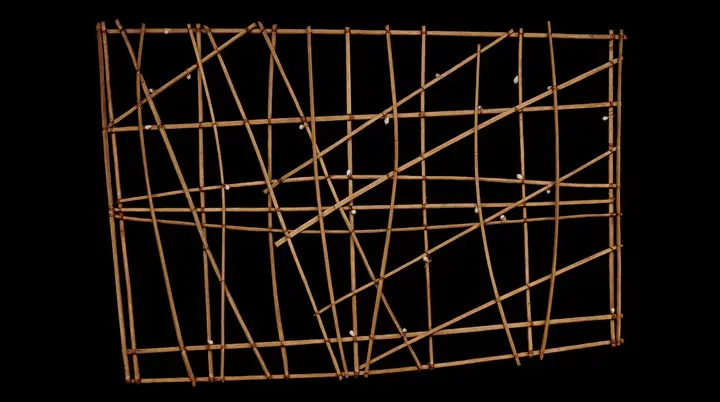
Navigation chart
Meant to be memorized prior to a voyage. Enabled navigators to guide boats through the many islands to get to a destination. Made of wood, therefore waterproof and buoyant.
21
New cards
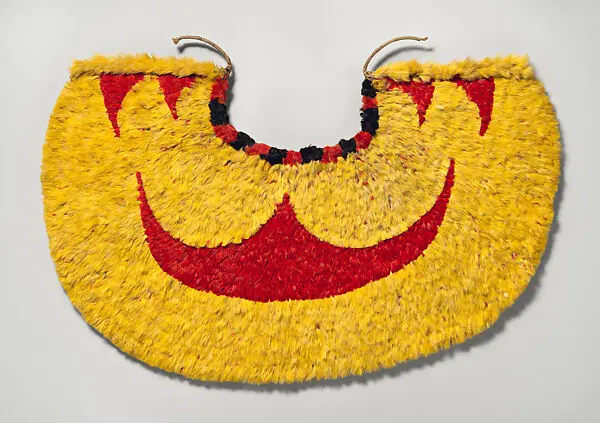
‘Ahu ‘ula (feather cape)
Feathers numbered 500,000; some birds had only seven usable feathers. Only high-ranking chiefs or warriors of great ability were entitled to wear these; mostly by men.
22
New cards
Mana
a supernatural force believed to dwell in a person or sacred object.
23
New cards
Red
____ was considered a royal color in Polynesia; yellow was prized because of its rarity
24
New cards

Staff God
Large, column-like, wooden core mounted upright in village common spaces; the wooden core is wrapped with tapa cloth. The wooden sculpture placed on top features a large carved head with several smaller figures carved below it Most were destroyed; only the top ends were retained as trophies.
25
New cards
manava
Reverend John Williams observed that the barkcloth contained red feathers and pieces of pearl shell, known as the ______ or the spirit of the god.
26
New cards
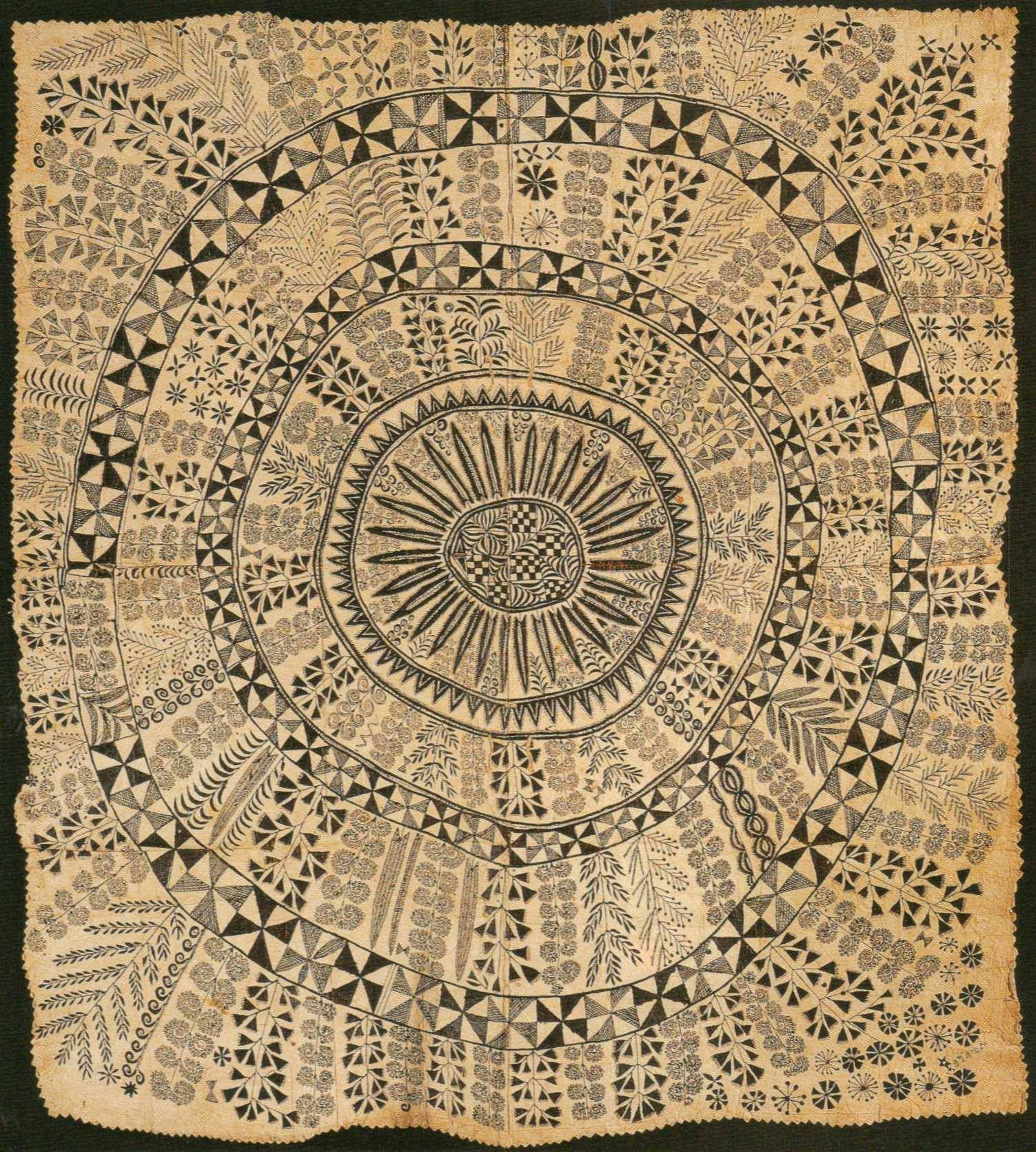
Hiapo (tapa)
Cloth made from tree bark; the pieces are beaten and pasted together. After it is dried, designs are sometimes repainted to enhance the effect. Traditionally worn as clothing before the importation of cotton.
27
New cards
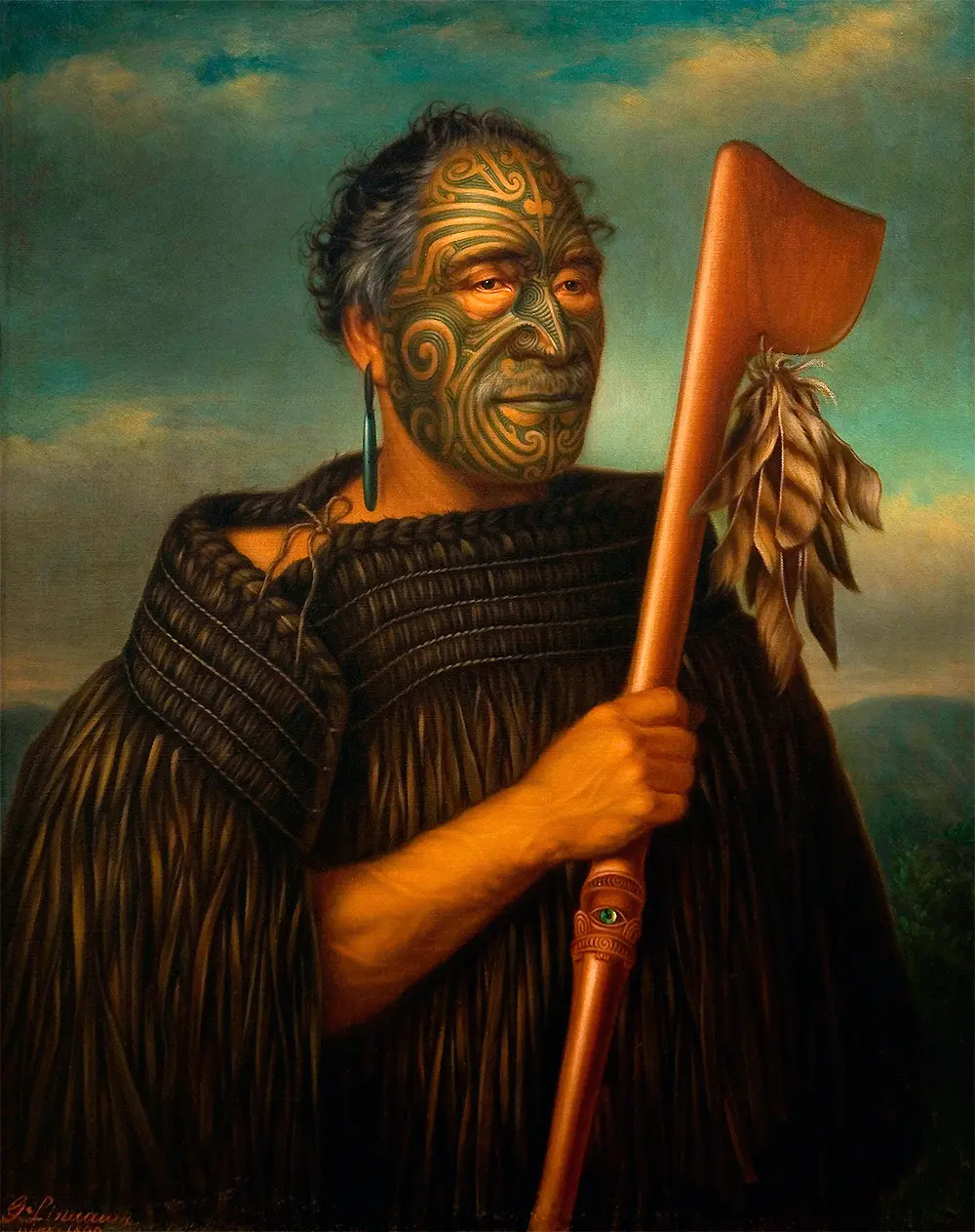
Tamati Waka Nene
By Gottfried Lindauer (1890); A Maori chief and convert to the Wesleyan faith. Painting is posthumous, based on a photograph by John Crombie.
28
New cards
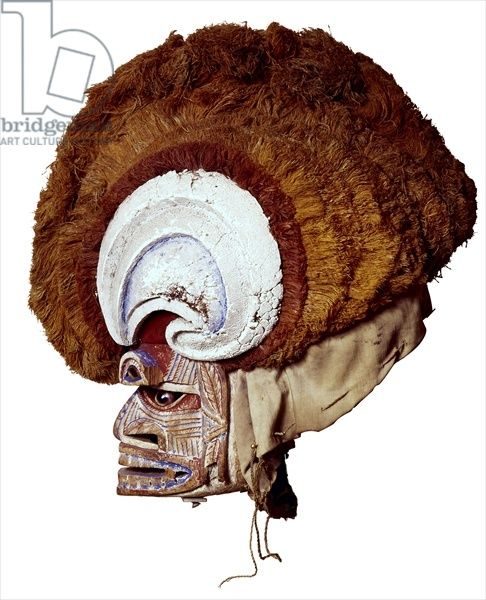
Malagan mask
Commissioned; they represent the individual’s soul, or life force, not a physical presence. Indicates the relationship of a particular deceased person to a clan and to living members of the family. Painted black, yellow, and red: important colors denoting violence, war, and magic.
29
New cards
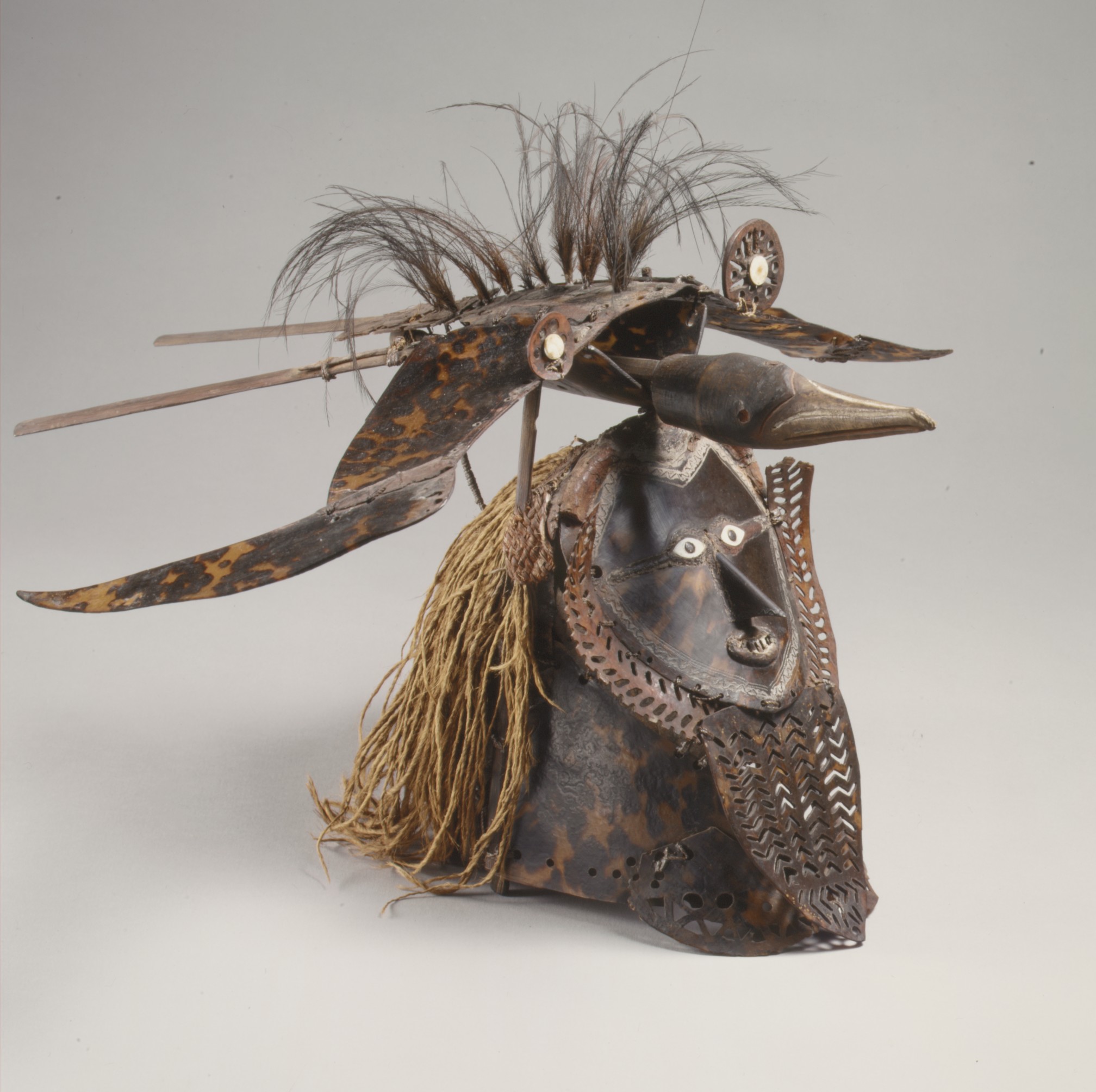
Buk (mask)
Part of a larger grass costume used in ceremonies about death, fertility, or male initiation, perhaps even to ensure a good harvest. This mask shows a bird placed on top.
30
New cards
Torres Strait
It is the water passageway between Australia and New Guinea.
31
New cards
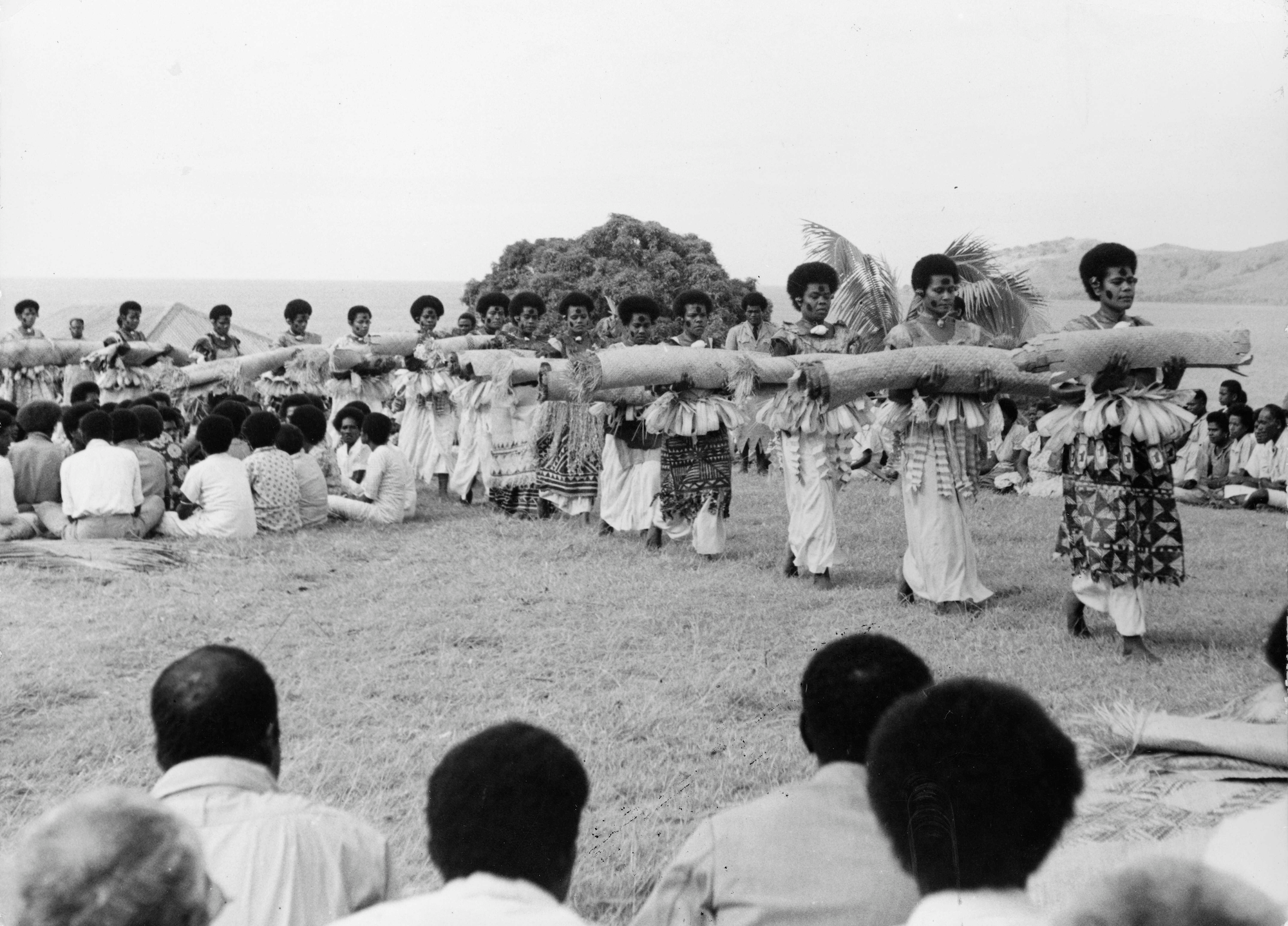
Presentation of Fijian mats and tapa cloths to Queen Elizabeth II
Multimedia performance, photographic documentation. Presented to the Queenin 1953 in commemoration of her visit to Fiji on the occasion of her coronation as queen of England.
32
New cards
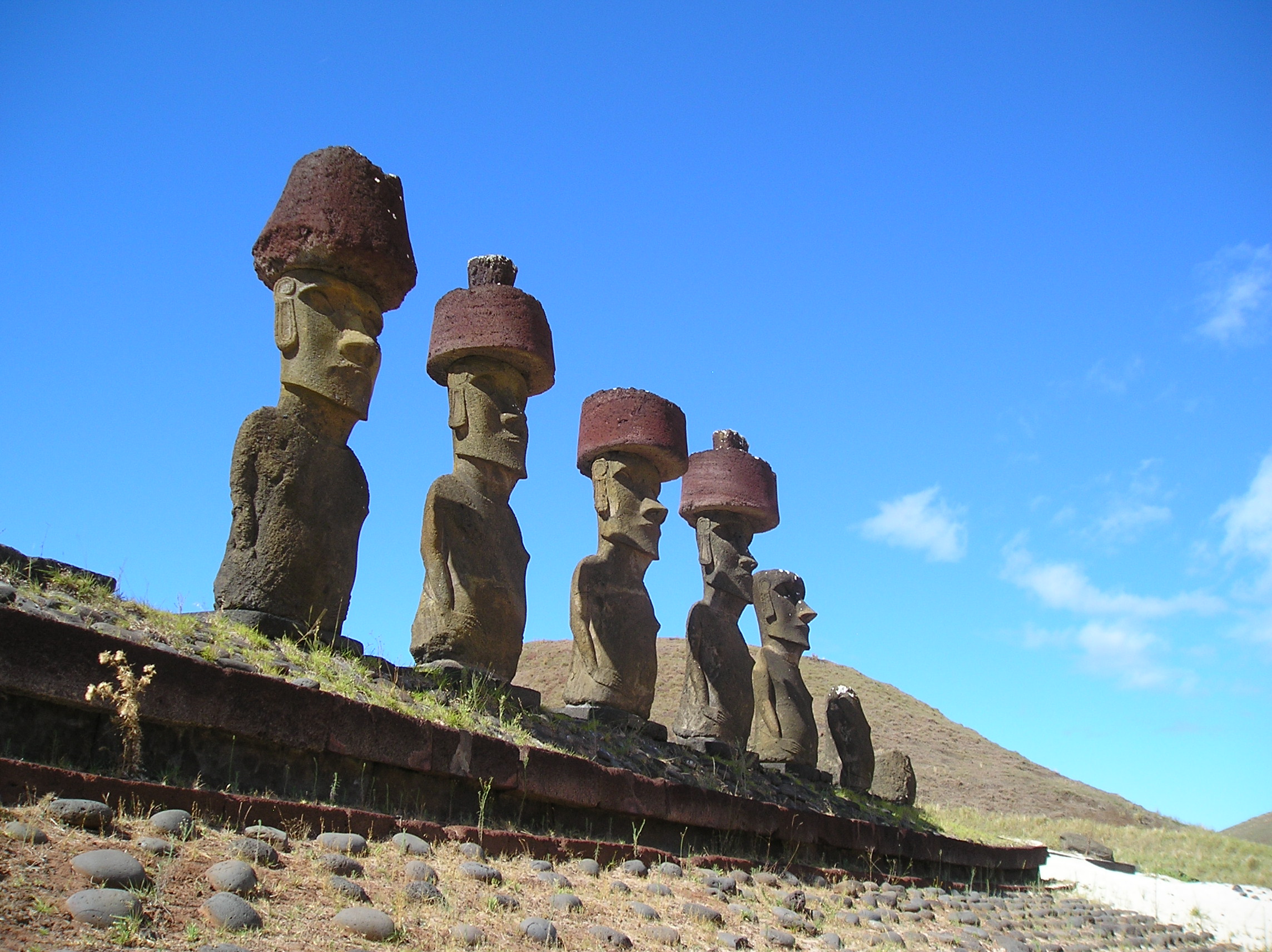
Moai on platform (ahu)
Prominent foreheads; large broad noses; thin pouting lips; ears that reach to the top of their heads. Short, thin arms fall straight down; hands on hips; hands across lower abdomen below navel. Monuments were toppled face down because it was believed that the eyes had spiritual power.
33
New cards
ahu
large platforms of stone mixed with ashes from cremations;